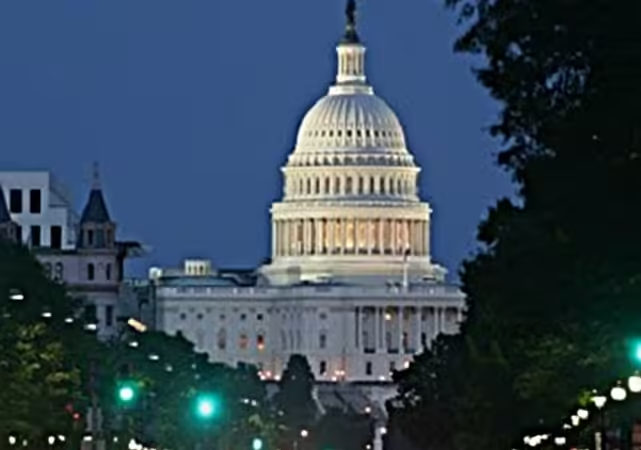
ICHRAs emerge as potential bipartisan bridge in shutdown-ridden congress
What You Need To Know
- An ICHRA reboot provision almost made it into the One Big Beautiful Bill Act.
- Lawmakers are trying to get the legislation through Congress in the form of stand-alone bills.
- Two people who could influence the fate of the bills are Daniel Aronowitz and Mark Bertolini.
Supporters of individual coverage health reimbursement arrangements tried, and failed, to get an ICHRA law into the One Big Beautiful Bill Act this past summer.
Now, ICHRA supporters are asking Congress to pass ICHRA legislation in the form of a stand-alone bill
The HRA Council has started a campaign to promote a House version of the ICHRA reboot bill, which was introduced by Rep. Kevin Hern, R-Okla., and a Senate version, which was introduced by Sen. Tim Sheehy, R-Mont.
Alan Silver, president of ICHRA at Ambetter Health Solutions, a Centene division that’s active in the ICHRA market, put out a separate statement praising the bills. Implementing the legislation “could ultimately expand access to affordable, portable coverage options,” Silver said.
What it means: At press time, neither the Hern bill nor the Sheehy bill had a Democratic cosponsor, but, traditionally, the ICHRA concept has had solid bipartisan support.
In theory, discussions about ICHRA bills could bring Democrats and Republicans together and help them end the current federal government shutdown.
One reason that could work is that Democrats say they are refusing to vote for the funding needed to keep the government running normally because they want Republicans to keep ACA individual health insurance premium tax credit subsidy levels at the current relatively high levels.
Keeping the individual health insurance market stable is important to making ICHRAs successful. That means ICHRA supporters may have the ability to connect Republicans who like ICHRAs with Democrats who like the current ACA premium tax credit subsidy levels.
ICHRAs: Employers have asked for decades for the ability to give workers cash that the workers could use to buy their own individual or family health coverage without fear of medical underwriting.
Now, thanks to Affordable Care Act individual major medical underwriting rules and the birth of the ICHRA and a similar program, the qualified small employer HRA, employers have strategies they can use to put health benefits cash directly in employees’ hands. The employees can then use the cash to buy coverage through the ACA public exchange system.
ICHRA advocates say ICHRA plans give workers the ability to choose the coverage that fits them the best.
Critics worry that ICHRA plans will give employers a way to water down health benefits and somehow make the $231 billion federal income tax exclusion for employer health benefits even more costly.
Rep. Blake Moore, R-Utah, said recently during an event organized by the Employee Benefit Research Institute that another obstacle is that some long-serving members of the House Ways and Means Committee, which has jurisdiction over House health account bills, worry that health account programs mainly meet the needs of high-income people, not the needs of low-income and moderate-income people.
The ICHRA program is now based on Internal Revenue Service regulations, not a federal law.
The House originally put an ICHRA reboot provision in the OBBBA package, but the Senate took it out.
The new bills: The new ICHRA bills have different names but are otherwise similar.
They would rename ICHRAs, put ICHRA provisions in federal law, and simplify and clarify some of the current rules, such as the rules governing how the cash put in the employees’ accounts is taxed.
The future: Blake said during the EBRI event that he thought getting ICHRA legislation through Congress this year would be difficult.
One question is what Daniel Aronowitz, the newly confirmed assistant U.S. Labor secretary in charge of the Employee Benefits Security Administration, thinks about health accounts.
Aronowitz is a longtime benefits lawyer and insurance industry executive who may have the knowledge and sales skills to win support for any projects he puts at the top of his to-do list.
Another factor could be what Mark Bertolini thinks.
Bertolini is the CEO of Oscar Health and the former CEO of Aetna. Earlier this week, he took over as the chairman of the board at Verizon, one of the biggest, most influential U.S. employers.
Bertolini has been a strong supporter of ICHRAs. His new role at Verizon could increase his ability to help ICHRA bills.
Bertolini could also have some ability to get the attention of the administration of President Donald Trump, because the vice chairman and co-founder of Oscar is Joshua Kushner. Kushner is the brother of Trump’s son-in-law, Jared Kushner.
